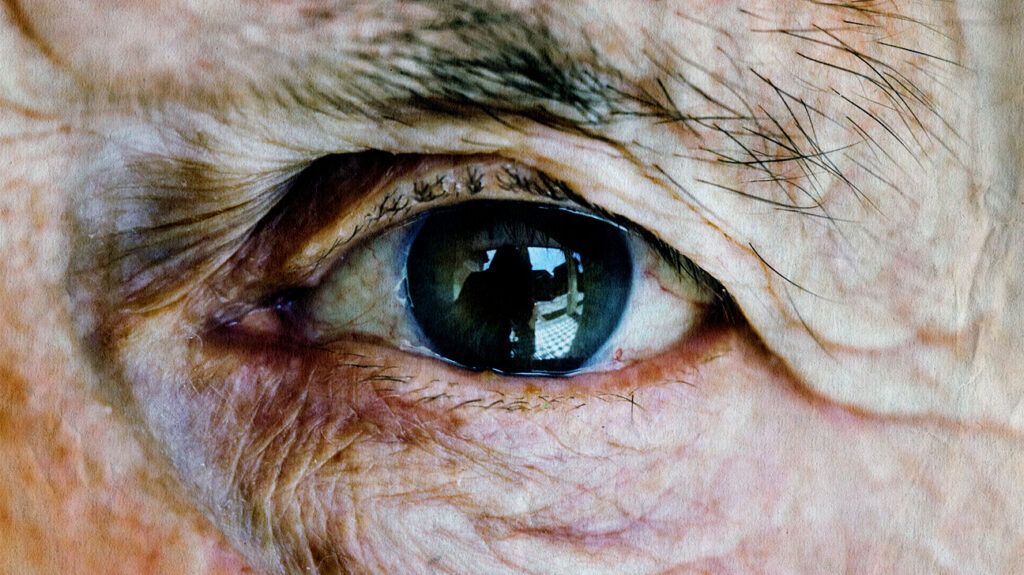Glaucoma is not fatal. Without treatment, glaucoma can cause significant vision loss and eventually blindness, but early treatment can help protect vision and slow the progression of the disease.
Glaucoma is the term for a group of eye conditions that damage the optic nerve at the back of the eye. Without treatment, it can lead to vision loss and blindness.
Glaucoma is not a life threatening condition, but significant vision loss may affect a person’s quality of life. Impaired vision may also increase the risk of falls or accidents.
Early treatment can help slow the progression of the disease and preserve vision.
This article examines whether glaucoma affects life expectancy, how glaucoma may affect vision and blindness risk, and how to slow glaucoma progression.

Glaucoma is not a fatal condition. A
Researchers found that in people with glaucoma, higher mortality rates were only due to older age. Even with higher rates of diabetes among people with glaucoma, the study suggests this did not necessarily link to increased mortality.
A small 2018 study examined mortality and vision function among individuals within 20 years of receiving a diagnosis of chronic open-angle glaucoma.
Out of 54 participants, roughly 2 in 3 people with glaucoma died within 20 years of diagnosis. These people had an age of 84 years, and the most common cause of death was vascular disease.
Almost half of the participants had no eye deterioration, and 28.3% had eye deterioration of more than two stages.
The researchers concluded that, in most older adults with glaucoma, it is possible to prevent visual handicaps and blindness 20 years after diagnosis.
Without treatment, glaucoma can cause blindness. The speed at which blindness occurs can depend on the type of glaucoma and how quickly people begin treatment.
Some types of glaucoma may progress more quickly than others. For example, exfoliation glaucoma, a form of open-angle glaucoma, may progress faster than primary open-angle glaucoma.
Angle-closure glaucoma is a severe form of glaucoma that requires emergency medical care. Immediate treatment is essential to prevent blindness. Without treatment, blindness can occur
Laser treatment and medication for angle-closure glaucoma can help excess fluid drain from the eye to reduce eye pressure and prevent vision loss.
With other types of glaucoma, vision loss occurs more gradually over time and, without treatment, may eventually lead to blindness.
Although there is currently no cure for glaucoma, treatment can help control the condition and slow down or prevent the progression of vision loss. Starting treatment as early as possible may provide the best outlook.
Treatment for glaucoma aims to improve fluid drainage from the eye and reduce eye pressure to prevent further damage to the optic nerve. Treatments for glaucoma may include the following:
- medicated eye drops to reduce fluid in the eye and lower eye pressure
- laser surgery to improve fluid drainage from the eye
- surgery to create or implant a drainage channel or device to increase fluid drainage from the eye
- cataract surgery, which removes the natural lens of the eye to reduce eye pressure
When is it too late to treat glaucoma?
According to the American Academy of Ophthalmology, vision loss due to glaucoma is irreversible, and any existing damage is permanent. However, treatment can help prevent further damage.
A
Glaucoma may not cause any symptoms in the early stages of the condition. It is important to attend regular eye exams, as a complete eye exam is the only way to determine if someone has glaucoma. Early diagnosis can help prevent vision loss.
People should consider talking with a doctor if they have any risk factors for glaucoma, such as a family history of the condition, as they may need more regular check-ups or monitoring.
As glaucoma progresses, people may notice changes in their vision, such as dim vision, loss of peripheral vision, or blind spots. It is best to contact a doctor or eye specialist if a person experiences any changes to their vision.
People
Glaucoma is not a life threatening condition, but it is a progressive condition that can worsen over time. Without treatment, glaucoma can cause vision loss and eventually lead to blindness.
Treatment can help prevent any further damage and slow the progression of glaucoma. Treatment may include medications, laser surgery, and surgery to improve fluid drainage and reduce eye pressure.
Regular eye exams are important to detect glaucoma early. Getting a diagnosis and starting treatment for glaucoma as soon as possible can help prevent vision loss.
